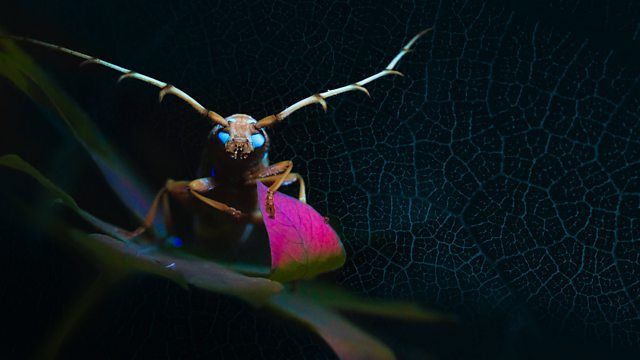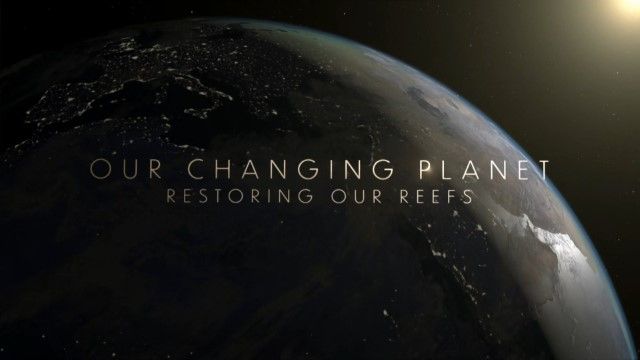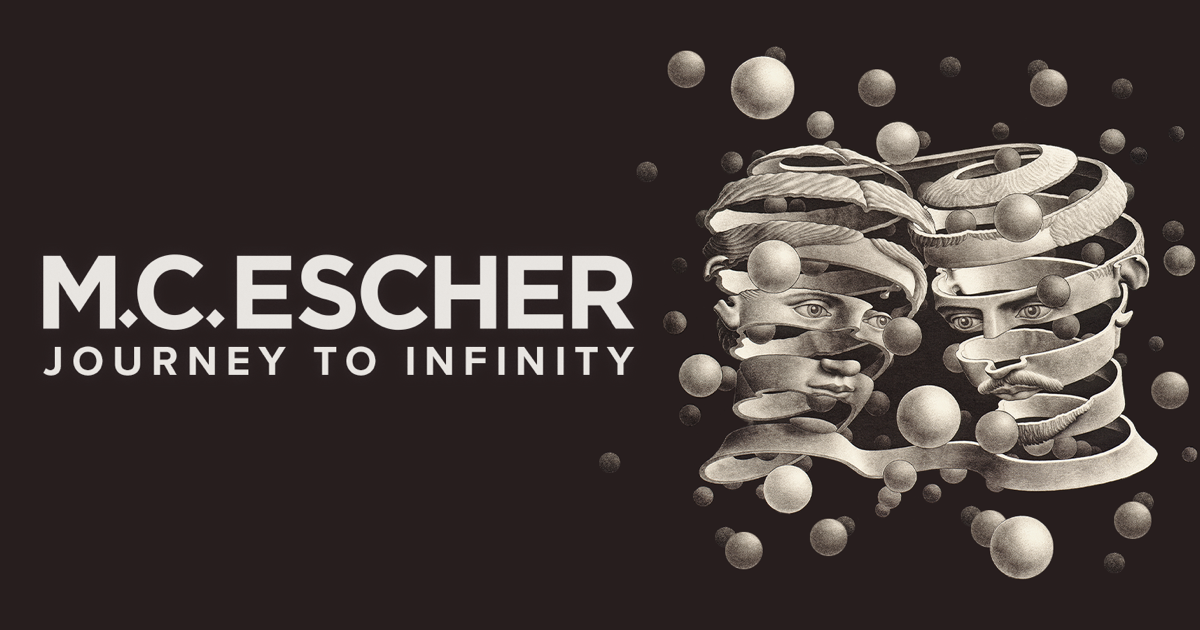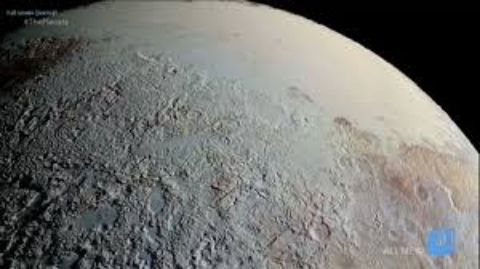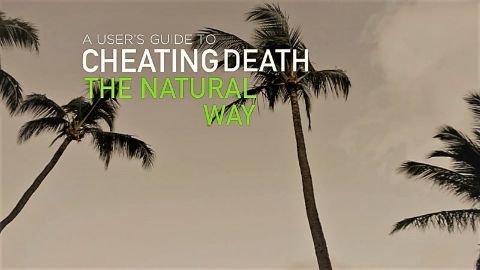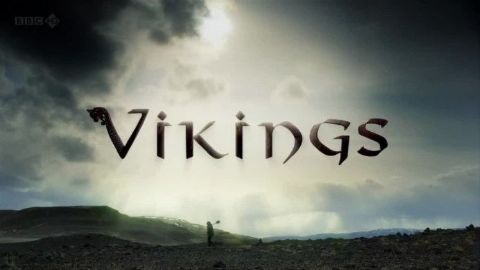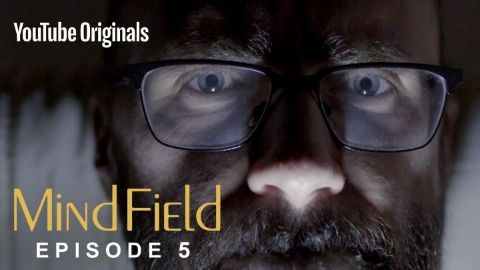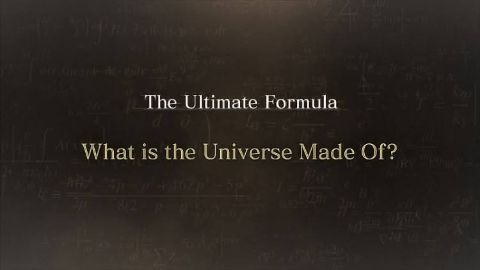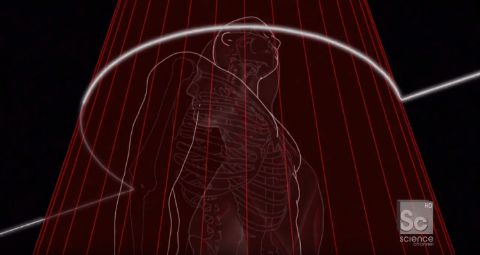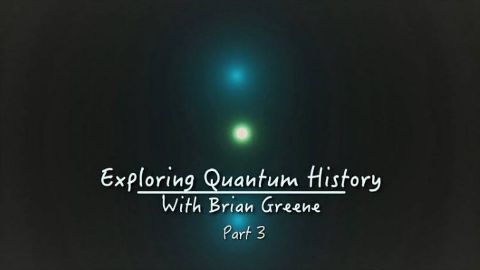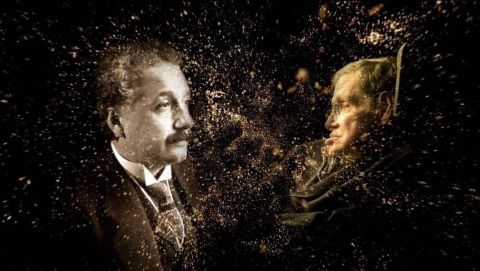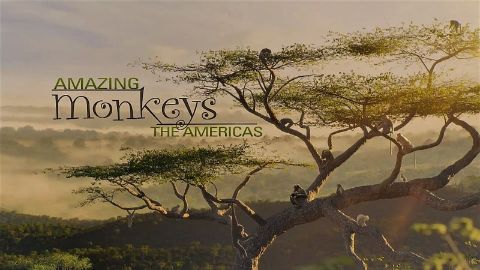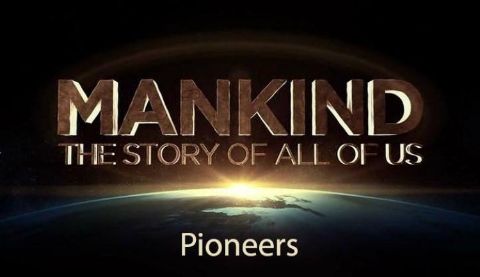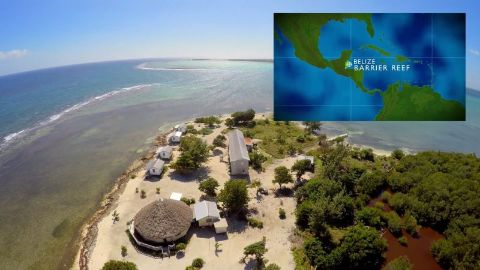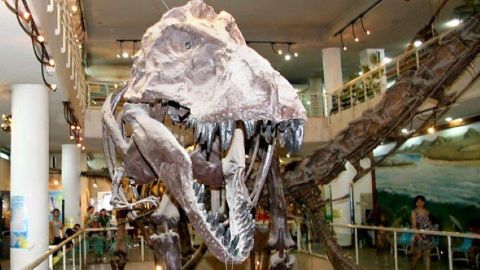Latest Documentaries
The culture of Japan is incredible, from bloom festivals to ultra-modern cities. But there are also more than 130 mammals and 600 bird species dwelling in Japan’s 6,852 islands. This island chain is long enough to span climate zones, providing a huge range of habitat.
2020 • Nature
Exploring the realm of the creatures to better understand how they have evolved. Travelling from the rain forests of French Guiana to the Arctic Ocean, scientists use traditional and cutting edge techniques to examine both modern insects and the fossil record in their search for a single common insect ancestor.
2024 • Nature
David Attenborough reveals why forests are the ultimate test of survival for mammals, including a tiger whose stealth and hunting strategies are put to the test in the heat of an Indian summer. The programme also features footage of young chimpanzees learning how to get honey without angering bees and Siberian flying squirrel gliding elegantly and effortlessly from tree to tree.
S1E6 • Mammals with David Attenborough • 2024 • Nature
David Attenborough reveals how, by pushing themselves and their bodies to the limit, mammals have found remarkable ways to survive in the hottest places on earth. In South America, thirsty capuchins need all their natural curiosity as they search for water on the forest floor. Camels roam the vast outback of Australia, where they can go for weeks without water thanks to their distinctive hump as an energy store. White sifaka lemurs hug trees to avoid the heat in Madagascar's spiny forest and the echidna has an even stranger way of keeping cool - it blows snot bubbles.
S1E5 • Mammals with David Attenborough • 2024 • Nature
From ice-covered seas to snow-capped mountains, mammals have conquered the cold, living in the harshest places on earth thanks to their remarkable intelligence and adaptations. The programme features polar bears on the Arctic islands of Svalbard, arctic foxes in Canada's Hudson Bay, and snow leopards in the lofty mountains of the Qinghai-Tibet Plateau in China.
S1E4 • Mammals with David Attenborough • 2024 • Nature
How air-breathing mammals have found remarkable ways to overcome the many challenges of a life in water, from freshwater jungle ponds to the dark depths of the open ocean. Featuring footage of the birth of a huge sperm whale calf, never-before-filmed orca hunting behaviour, and coastal coyotes in Mexico that have learnt they can benefit from the daily offerings washed up on the shore with each new tide.
S1E3 • Mammals with David Attenborough • 2024 • Nature
A look at mammals which have adapted to the changes humans have made to their environment, from sea lions competing with stray dogs for food in the fish markets of Chile to pig-tailed macaques in palm oil plantations in south east Asia. Plus, a look at how elephants have learnt to use the cover of darkness to venture into towns in search of a midnight feast, often leaving destruction in their wake.
S1E2 • Mammals with David Attenborough • 2024 • Nature
Focuses on animals that thrive in the dark, from leopards that use night vision to hunt their prey to bats using echolocation to navigate the night skies.
S1E1 • Mammals with David Attenborough • 2024 • Nature
Delve into the digestive system with this lighthearted and informative documentary that demystifies the role gut health plays in our overall well-being.
2024 • Health
In the third year of this seven-year project examining the issues facing the planet’s most threatened ecosystems, Dr. M. Sanjayan visits the Maldives to take an in-depth look at coral reefs and the urgent efforts to help them survive climate change.
S3E1 • 2024 • Nature
The life and work of M.C. Escher is presented primarily through his own words in the form of his writings being read against a backdrop of images associated to him, including archival footage of himself and images of his drawings. Many further details are provided by surviving family members. Escher himself considered what he did being caught between the worlds of art and mathematics - he not very good at either - his drawings always having an element of geometry. He made a conscious decision to work in monochromatic black and white realizing that he would be missing being able to convey ideas that are inherent with color. The evolution to two of his later periods is discussed, namely his series of drawings of the human eye, and what would become his ultimate fascination, that of the concept of infinity, whether it be real, as in the circle or the study of a man viewing a picture of himself viewing a picture of himself and so on, or perceived through illusions, such as his never-ending staircase. The documentary is buttressed by commentary from fan, musician Graham Nash who believes his brilliance has not yet been fully appreciated. Further Information
2021 • People
The mid-10th-century reign of Harald Bluetooth as king of a newly unified, powerful and Christianized Denmark marked the beginning of a second Viking age. But the reign was not to last with the Normans finally winning the English Kingdom in 1066. We look at the final days of the Viking empire.
S1E6 • Vikings: The Rise and Fall • 2022 • History
Recommended Documentaries
Astronaut Mike Massimino explores the dwarf planet Pluto, a tiny frozen world surrounded in secrets; using the latest science, he investigates the possibility of life in its mysterious ocean.
S1E6 • The Planets (US) • 2017 • Astronomy
In the first episode, Dr Alice Roberts looks at how our skeleton reveals our incredible evolutionary journey.
S1E1 • Origins of Us • Nature
As Nasa releases the first images from the James Webb Space Telescope, this film tells the inside story of the telescope's construction and the astronomers taking its first picture of distant stars and galaxies. Will it be the deepest image of our universe ever taken? The successor to Hubble, and 100 times more powerful, the James Webb is the most technically advanced telescope ever built. It will look further back in time than Hubble to an era around 200 million years after the Big Bang, when the first stars and galaxies appeared. Webb's primary mission is to capture the faint light from these objects on the edge of our visible universe so that scientists can learn how they formed, but its instruments are so sensitive it could also be the first telescope to detect signs of life on a distant planet. The James Webb Telescope is an ?8 billion gamble on the skills of its engineering team. It’s the first telescope designed to unfold in space – a complicated two-week operation in which 178 release devices must all work - 107 of them on the telescope's sun shield alone. If just one fails, the expensive telescope could become a giant piece of space junk. From its conception in the late 1980s, the construction of Webb has posed a huge technical challenge. The team must build a mirror six times larger than Hubble’s and construct a vast sun shield the size of a tennis court, fold them up so they fit into an Ariane 5 rocket, then find a way to unfold them in space. This film tells the inside story of the James Webb Space Telescope in the words of the engineers who built it and the astronomers who will use it.
2022 • Astronomy
Growing distrust in GMOs, pharmaceuticals and non-natural solutions has pushed families to seek more 'natural' approaches to medical issues - sometimes with fatal consequences.
S1E5 • A User's Guide to Cheating Death • 2017 • Health
Neil Oliver reveals the truth behind the legend of the Vikings. (Part 1.) Neil begins by discovering the mysterious world of the Vikings' prehistoric ancestors. The remains of weapon-filled war boats, long-haired Bronze Age farmers, and the Swedish site of a royal palace and gruesome pagan ritual conjure up an ancient past from which the Viking Age was to suddenly erupt.
If I could live forever, should I? How does being reminded of our own mortality affect us psychologically? In this episode I speak with mortician and death positivity activist Caitlin Doughty and visit a cryonics facility trying to extend human life indefinitely. Will I take them up on their offer, or will I choose to die?
S3E5 • Mind Field • 2018 • Brain
Physics Documentaries
For over a century, physicists have searched for a blueprint of the universe in the form of a single mathematical formula. This ultimate formula would explain the fundamental building blocks of the universe -– the elementary particles and the different forces that govern them. In their quest, physicists dedicated themselves to the pursuit of mathematical beauty but they were to be met with unexpected setbacks. The discovery of the Higgs boson in 2012 at last confirmed the Standard Model –- a culmination of the theories of various physicists that finally seemed to explain what this universe is made of. But is this where the story ends...? Using the latest computer graphics and interviews with Nobel Prize-winning physicists, we look at the fascinating and dramatic story of the search for the ultimate formula.
S1E1 • The Ultimate Formula • 2016 • Physics
A cloak of invisibility isn't just some Harry Potter fantasy- Dr. Michio Kaku draws up the blueprints for a real invisibility cloak and reveals that vanishing into thin air could be much closer than we think.
S1E5 • Physics of the Impossible • 2009 • Physics
Follow scientists on their quest to understand and capture the first image of a black hole while exploring the limits of our knowledge of the universe.
2021 • Physics
The quantum mechanics revolution has revolutionized modern technology. Renowned physicist Brian Greene takes us on a journey through the modern electronic age, from transistors to fiber optics, all made possible through quantum mechanics.
S1E3 • Exploring Quantum History with Brian Greene • 2016 • Physics
Albert Einstein and Stephen Hawking were revolutionary thinkers who changed everything we know about our universe, and using the latest discoveries, experts explore the connections between these two great minds.
2019 • Physics
Adam Savage walks through two spectacular examples of profound scientific discoveries that came from simple, creative methods anyone could have followed -- Eratosthenes' calculation of the Earth's circumference around 200 BC and Hippolyte Fizeau's measurement of the speed of light in 1849.
2012 • Physics
Math Documentaries
Dr Hannah Fry explores the limits of our control, from dangerous miscalculations to creating and spotting fake videos, and questions how far we should be going with our mathematical skills. A gravity-defying BMX stunt kick-starts the debate around trusting the numbers, and launches us into an investigation of just how sure we can be about anything in our messy world. Together with maths comedian Matt Parker, Hannah uses flaming balloons and gigantic slices of melting cheese to get to the bottom of the guesswork used in real world calculations. A visiting drone zips through the corridors of the historic Royal Institution building, introducing the mother of all drones, a human-sized machine that delivers urgent parcels, and we welcome the team designing driverless helicopters and buying up London rooftops to prepare for the future. But these physical challenges are just the beginning of the debate on handing control over to machines. Hannah explores whether human jurors or robots make fairer decisions, and welcomes Atima Lui, who is on a mission to design the most unbiased facial detection software in the world, which will say goodbye to the 'fast track for white people' at automatic passport gates. Hannah dives into the issues around privacy in our modern world, with Glow Up make-up star Tiffany Hunt making a member of the audience invisible to CCTV, while Hannah explores the truth behind cookies and anonymity online. Finally, she delves into the world of fake news, to separate the truth from the lies. Leading deep fake creators team up with the Christmas Lectures to create a television first – a custom-made deep fake video of a child in the audience, highlighting our ability to use maths to warp reality however we please. Hannah ultimately explores who the real winners are, in an escalating arms race of mathematical tricks.
S1E3 • Royal Institution Christmas Lectures: Secrets and Lies - The Hidden Power of Maths • 2019 • Math
Psychedelics have impacted history for as long as there have been people wanting to get their minds blown. Discover who's been under the influence from Salem witches and Santa Claus to 1960s hippies and Steve Jobs, and find out how mind-altering substances have changed our world.
S1E2 • History By The Numbers • 2021 • Math
Would mathematics exist if people didn't? Did we create mathematical concepts to help us understand the world around us, or is math the native language of the universe itself? Jeff Dekofsky traces some famous arguments in this ancient and hotly debated question.
An algorithm is a method of solving problems both big and small. Though computers run algorithms constantly, humans can also solve problems with algorithms. David J. Malan explains how algorithms can be used in seemingly simple situations and also complex ones.
One deck. Fifty-two cards. How many arrangements? Let's put it this way: Any time you pick up a well shuffled deck, you are almost certainly holding an arrangement of cards that has never before existed and might not exist again. Yannay Khaikin explains how factorials allow us to pinpoint the exact (very large) number of permutations in a standard deck of cards.
Dr Hannah Fry reveals how data-gobbling algorithms have taken over our lives and now control almost everything we do, without us being aware of it. Pitching the UK speed-cubing champion against a machine in the opening seconds of the lecture, Hannah sets the pace for a rapid voyage through this superhuman world. Hannah teams up with famed YouTuber Tom Scott to create a viral video and decipher YouTube's secret algorithm, comes face to face with four-legged guests to put animal image recognition machines to the test, and reveals how the NHS is matching organ donors in chains across the country to save hundreds of lives. But the breakthroughs are not restricted to the real world. Bafta award-winning special guests reveal the secrets of CGI in films such as The Avengers and Lord of the Rings, and supersized laser illusions bring the Royal Institution to life. An unexpected feathery guest opens our eyes to a new type of coding, where computers can be trained like animals using tasty rewards, with maths comedian Matt Parker and computing expert Dr Anne-Marie Imafidon bringing the topic to life. Finally, Hannah reveals how we've all been training up Google's AI in this way for years without realising it, and discovers how Google Health is using big data to give doctors a helping hand. The power of algorithms is undeniable. Hannah ultimately discovers how we can bend the world to our will and make anything possible, with a bit of mathematical thinking.
S1E2 • Royal Institution Christmas Lectures: Secrets and Lies - The Hidden Power of Maths • 2019 • Math
Randoms! Documentaries
Chuck D and Arsenio Hall discuss the pop-culture revolution of 1989 that raised the collective social consciousness.
S1E4 • 1989: The Year that Made the Modern World • 2019 • People
Meet leaping acrobats, nut-cracking wizards, and Earth's loudest land animal as we celebrate primates of the Americas.
S1E3 • Amazing Monkeys • 2018 • Nature
Mankind embarks on a new age of exploration, and tames the wilderness. In North America, Siberia and Australia, ancient traditions are swept away in the name of commerce and science. Within a hundred years, the irrational fear that produced a witch trial in Salem gives way to a very rational cry for freedom. American revolutionaries confront a mighty empire. The battle for the modern world begins.
9/12 • Mankind: The Story of All of Us • 2012 • History
The Belize Barrier Reef is the second-largest coral reef system in the world. Estimated to be nearly 4,000 years old, its waters are home to an immense marine ecosystem. Explore a deep blue wilderness brimming with rare, exotic fish, sea turtles, sharks, and huge green morays.
5 • Great Blue Wild • 2017 • Nature
Professor Richard Fortey travels to northeastern China to see a fossil site known as the 'Dinosaur Pompeii' - a place that has yielded spectacular remains of feathered dinosaurs and rewritten the story of the origins of birds. Among the amazing finds he investigates are the feathered cousin of T-rex, a feathered dinosaur with strong parallels to living pandas and some of the most remarkable flying animals that have ever lived.
S1E2 • Fossil Wonderlands: Nature's Hidden Treasures • 2014 • Nature
Astrophysicist Dr. Neil DeGrasse Tyson was asked by a reader of TIME magazine, "What is the most astounding fact you can share with us about the Universe?" This is his answer.
2012 • Science

